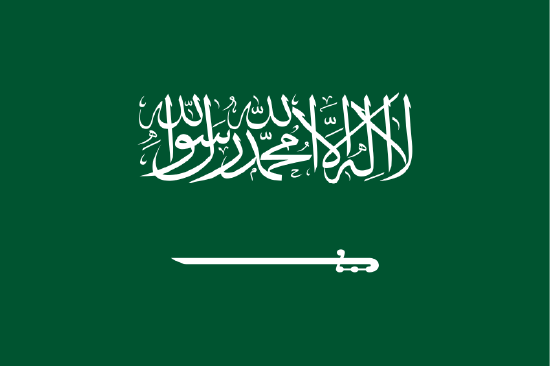
There exists a rich vocabulary for referring to non-democracies, past and present. Scholars have employed terms such as dictatorship, tyranny, monarchy, oligarchy, and totalitarian regime, among others, to describe this kind of political system. All of these, and many more, fall under a broad umbrella of regimes that can be described as non-democratic. At its broadest, non-democracy refers to all forms of government which deny citizens meaningful institutional channels for making choices about their collective well-being. This can range from limited to no ability for public input in the selection of political leaders and limited to no decision-making power over the allocation of public resources.
Non-democracies are quite diverse, even more so than democracies, and this variety extends across time and space. While there are 'varieties of democracy' ranging from liberal to social democratic, with different institutional configurations such as presidential and parliamentary, across democracies there exist common principles such as divided government and accountability to the people. All democracies have electoral systems, an executive, legislature, and judiciary. Non-democracies, in contrast, do not have any common organizational features; instead, they run the gamut from rule by a single person with minimal institutionalization to complex bureaucratic systems under collective leadership. In this sense, non-democracies are a much broader and confounding collection of countries to study.
Empirically, non-democracies are also distinct from democracies in important ways. Non-democratic regimes are much more variable in their economic performance (Gandhi 2008). Many have swung from extreme levels of nationwide poverty to becoming economic dynamos, presenting sustained economic growth rates unseen in recorded human history. This would be the example set by China from 1978 to 2020. In a reversal of this pattern, the kingdom of Chad and post-independence state of Chad (1960-present) made the dramatic turn from a major trading empire during the ninth through nineteenth centuries to becoming one of the poorest sub-Saharan countries in Africa today. Non-democracies appear to experience deeper economic troughs and higher economic highs than their democratic counterparts.
While there exist many varieties of non-democracy, a subject taken up later in this chapter, all non-democracies share several overriding characteristics. These relate to accountability, competition, and freedom. Let’s take up each of these in turn.
Political accountability has many dimensions. Most critically in democracies, it exists between public officials and the public via the institution of free and fair elections. Accountability exists via other channels, such as through the free flow of information about political decisions and developments in a society. A free and independent media can ensure this flow of information, along with monitors within government. Accountability also exists when different branches of government can check each other, for example through vetoes, court rulings, and divided authority.
In a non-democracy, some or all of these forms of accountability are compromised: elections are rigged or don’t exist; the media is muzzled or state-owned; government exists to carry out the will of an unchecked political elite. All non-democracies restrict channels for accountability of political authority(ies) to the governed. Take the example of Saudi Arabia. This kingdom is one of the few remaining absolutist monarchies in existence today, and all political authority lays with the Al Saud royal family. The Saudi king is the leader of this family, and he is also head of state and head of government of Saudi Arabia. There is no legislature to pass laws in Saudi Arabia, and Saudi citizens do not elect representatives or otherwise have institutional channels for providing input in the national policy-making process. In this polity, the ruling Al Saud family is not accountable to the Saudi people.

Separate but related, non-democracies have limited to no competition for political office. This may mean the absence of political parties, as in the case of Saudi Arabia. Some non-democracies allow limited competition for public office, which was the case in Mexico under PRI (Partido Revolucionario Institucional). PRI controlled Mexican political life for 71 years and was famously described by novelist Mario Vargas Llosa as “the perfect dictatorship” because it managed to remain the ruling party of Mexico for decades despite the existence of opposition parties. These opposition parties began to win elections in the 1980s and, in 2000, PAN (Partido Acción Nacional) presidential candidate Vicente Fox won national elections and overturned decades of single-party rule in modern Mexico. Political parties are one way to observe the degree of competition in a political system, and they are a proxy for a deeper and more meaningful competition of policy ideas. This competition of ideas is a critical marker of the debate, dissent, and diversity that characterizes a democratic system.

Non-democracies lack a commitment to individual freedom, which is a hallmark of modern democracy. While democracies have many institutional channels for individual voice -- elections and independent media are key examples -- these are often manipulated or censored in a non-democracy. To justify the abrogation of individual freedoms, non-democracies may promote alternate values such as the importance of order and hierarchy over individual will or the need to subsume the individual to larger collective will (as mediated by those in power).
To capture these many aspects of non-democracy, across countries and within a country over time, there exist different measures. One measure can be found in the Polity Project (now in its fifth iteration), which examines aspects of a political system such as whether there is competition for executive positions and unconstrained participation in the political system. Polity scores for many countries around the world have been tracked from 1800 to the present; this data is publicly available and can be downloaded for analysis. Another popular measure of regime type is provided by Freedom House, a non-profit organization based in Washington, DC, that has tracked levels of political freedom and civil liberties in countries around the world since 1972. Freedom House scores, world maps, and reports are publicly available for download.